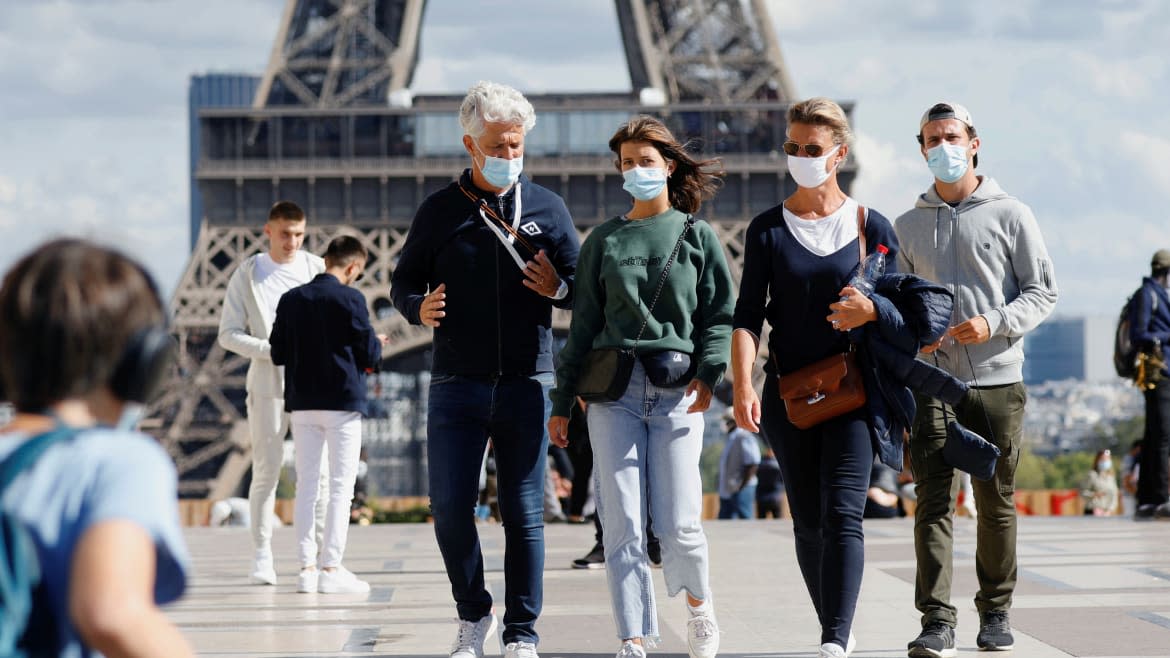The U.S. is in Denial Over the Coronavirus Pandemic as Europe Struggles With Second Wave

ROME—There was a moment late last spring when Europe was gloating about beating the COVID pandemic after several long hard months of lockdowns and sacrifices. New infections were down across the continent and life was pretty much back to normal. They even criticized the United States for not taking the pandemic seriously and opening up too soon.
Summer brought with it a miniwave of cases as Europeans took their summer holidays and spread the virus among countries, but it was still manageable and intensive care wards and mortuaries were mostly empty.
Europe Shouldn’t Gloat Too Soon About COVID-19
But now, more than a month after schools have reopened across the Eurozone, the COVID wave has turned into a tsunami and governments are threatening lockdowns once more. In northern England, field hospitals that had been shuttered after the first wave subsided are being readied for the overflow of new patients.
Jonathan Van-Tam, deputy chief medical officer for England, asked citizens to do their part. “Earlier in the year we were fighting a semi-invisible disease, about which we had little knowledge, and it seeded in the community at great speed,” he said in a statement Monday. “Now we know where it is and how to tackle it – let’s grasp this opportunity and prevent history from repeating itself.”
In France—about a fifth the size of the U.S.—daily cases have been topping 25,000 and intensive care wards are filling up with COVID patients just as the winter flu season is set to add misery to an already dreadful situation. In the Paris region, more than 40 percent of all ICU beds are now filled with COVID patients and the death rate has reached 50 per 100,000 people (compared to 183 per 100,000 in the U.S.) which has caused the French government to close bars in many cities, including in Paris, whose regional health minister Aurélien Rousseau tweeted a rather cryptic warning over the weekend, “Only millions of individual decisions can now reverse the virus.”
Spain, which has the highest number of cases in Europe with 861,112 and rising, has instituted a number of regional lockdowns and has made face masks mandatory in all indoor and outdoor public spaces. The death rate there is nearly 80 per 100,000, with more than 10,000 people hospitalized and an increasing number of people requiring ICU treatment.
Germany, which escaped the worst of the European first wave, has now named every major city in the country as a hotspot, meaning restrictions are in place just as that country’s schools go into a two-week break that will surely lead to travel and more infections.
In Belgium, hospitals are cancelling non-urgent care and surgeries and the Netherlands have recorded new daily records of infections for more than five days in a row and the Czech Republic now has the fastest growing number of daily cases a day with a positivity rate of around 30 percent.
Italy, which was the first epicenter outside of Asia last spring, has held the virus at bay while the rest of Europe struggled—until now. Over the last five days, the number of new daily infections has doubled to nearly 6,000, which was in line with the worst days of the crisis. The death toll, at least for now, has stayed relatively low, but ICU wards have seen a steady increase in COVID patients. The country’s health minister Roberto Speranza said Sunday that new restrictions were on the way, including wearing face masks at home when entertaining non family members.
Each of the new European hotspots have done far more to mitigate the spread than the U.S. throughout the pandemic with lockdowns, mask mandates and the closure of nightclubs and athletic arenas, which suggests that if Europe's second wave is worse than its first despite all it has done to prevent it, the worst could yet to come to the U.S., too.
Get our top stories in your inbox every day. Sign up now!
Daily Beast Membership: Beast Inside goes deeper on the stories that matter to you. Learn more.


